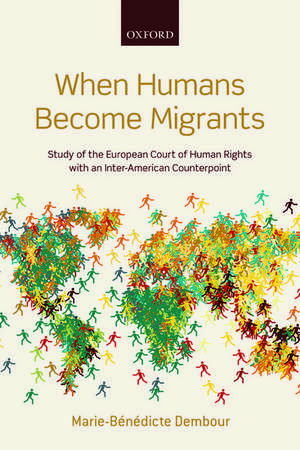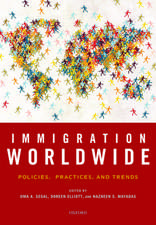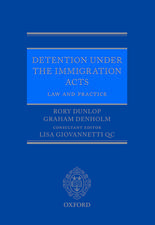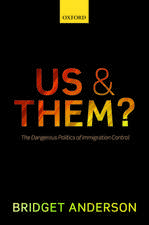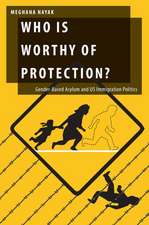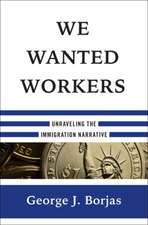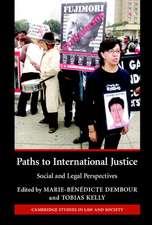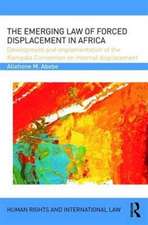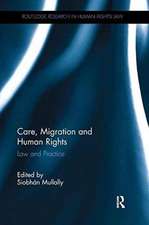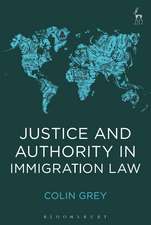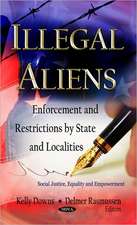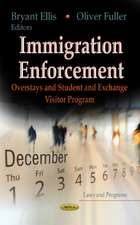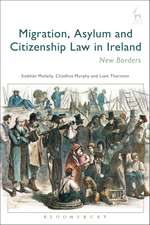When Humans Become Migrants: Study of the European Court of Human Rights with an Inter-American Counterpoint
Autor Marie-Bénédicte Dembouren Limba Engleză Paperback – 26 mar 2015
| Toate formatele și edițiile | Preț | Express |
|---|---|---|
| Paperback (1) | 383.64 lei 31-37 zile | |
| OUP OXFORD – 26 mar 2015 | 383.64 lei 31-37 zile | |
| Hardback (1) | 738.74 lei 31-37 zile | |
| OUP OXFORD – 26 mar 2015 | 738.74 lei 31-37 zile |
Preț: 383.64 lei
Preț vechi: 443.88 lei
-14% Nou
Puncte Express: 575
Preț estimativ în valută:
73.41€ • 76.84$ • 61.10£
73.41€ • 76.84$ • 61.10£
Carte tipărită la comandă
Livrare economică 20-26 martie
Preluare comenzi: 021 569.72.76
Specificații
ISBN-13: 9780199667840
ISBN-10: 0199667845
Pagini: 578
Dimensiuni: 178 x 234 x 31 mm
Greutate: 0.86 kg
Editura: OUP OXFORD
Colecția OUP Oxford
Locul publicării:Oxford, United Kingdom
ISBN-10: 0199667845
Pagini: 578
Dimensiuni: 178 x 234 x 31 mm
Greutate: 0.86 kg
Editura: OUP OXFORD
Colecția OUP Oxford
Locul publicării:Oxford, United Kingdom
Recenzii
When Humans Become Migrants is a magisterial endeavour which will become a standard work of reference for those working in the fields of migrants rights and the case law of the ECtHR. Despite being a lengthy, detailed work within narrowly drawn parameters, the clear, intuitive way in which the book, and each individual chapter, is structured, and the verve and clarity with which it is written lend it a discipline-transcending accessibility, which should ensure it the wide readership it merits.
With a title as hard hitting as When Humans Become Migrants one would hope the content of the book would be equally as striking, and thankfully it is. Through it, legal anthropologist Marie-Bénédicte Dembour challenges our thinking about the position and humanity of migrants, even before opening the book ... Dembours conceptual approach - contrasting the treatment of migrants in the European Court of Human Rights (ECtHR) with that of the Inter-American Court of Human Rights (IACHR) - provides a unique, highly relevant, and timely contribution to the field of human rights law and migration studies.
This book is highly recommendable for students, academics, and practitioners working on migration and human rights. It is an excellent and crucial addition to the literature and the first book where both regional courts are carefully examined on the issue of migrant protection. This makes the publication a lasting contribution for years to come and a central landmark in the scholarly research on the subject.
Dembour's analysis is wide-ranging, covering historical and current developments in a range of areas of concern to migrants and their representatives. It is a work of sympathetic imagination which holds fast to its ideals even when writing against the mainstream.
Dembour offers not only a perspicacious analysis and prudent suggestions, but also raises significant questions such as how the interests of migrants on one hand and of states on the other could be balanced without a bias for either or another, or how to regard the other as one of our own, create an open and inclusive attitude and set it as an institutional imperative.
In her characteristically original, distinctive and insightful way, Dembour invites us to abandon preconceived ideas and to think differently. This is the role judges need legal scholars to perform if academic commentaries are to nourish judicial decision-making. An intelligent, lucid and courageous book that takes the debate into new territory.
With a title as hard hitting as When Humans Become Migrants one would hope the content of the book would be equally as striking, and thankfully it is. Through it, legal anthropologist Marie-Bénédicte Dembour challenges our thinking about the position and humanity of migrants, even before opening the book ... Dembours conceptual approach - contrasting the treatment of migrants in the European Court of Human Rights (ECtHR) with that of the Inter-American Court of Human Rights (IACHR) - provides a unique, highly relevant, and timely contribution to the field of human rights law and migration studies.
This book is highly recommendable for students, academics, and practitioners working on migration and human rights. It is an excellent and crucial addition to the literature and the first book where both regional courts are carefully examined on the issue of migrant protection. This makes the publication a lasting contribution for years to come and a central landmark in the scholarly research on the subject.
Dembour's analysis is wide-ranging, covering historical and current developments in a range of areas of concern to migrants and their representatives. It is a work of sympathetic imagination which holds fast to its ideals even when writing against the mainstream.
Dembour offers not only a perspicacious analysis and prudent suggestions, but also raises significant questions such as how the interests of migrants on one hand and of states on the other could be balanced without a bias for either or another, or how to regard the other as one of our own, create an open and inclusive attitude and set it as an institutional imperative.
In her characteristically original, distinctive and insightful way, Dembour invites us to abandon preconceived ideas and to think differently. This is the role judges need legal scholars to perform if academic commentaries are to nourish judicial decision-making. An intelligent, lucid and courageous book that takes the debate into new territory.
Notă biografică
Marie-Bénédicte Dembour is Professor of Law and Anthropology at the University of Brighton. She was previously at the University of Sussex. She has been a visiting scholar/tutor/Professor at various European institutions, including the Free University of Amsterdam, the Free University of Brussels and the University of Oxford. When Humans Become Migrants was written with the support of a Leverhulme Major Research Fellowship.
